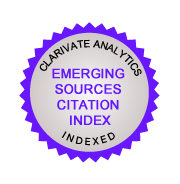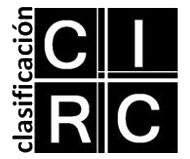Neither a “fissure” nor “moral degradation”: an empirical test of the political narrative in Argentina
DOI:
https://doi.org/10.24215/16696581e074Keywords:
culture change, polarization, political culture.Abstract
In these years, a line of discourse that emphasizes alleged cultural shortcomings of Argentines has gained resonance in our country. These narratives have focused on the existence of a "fissure" or sharp political division in society and, more recently, on aspects such as the apparent moral degradation of the country and the inclination of its citizens to depend on the State in detriment of personal effort. Using the databases of the World Values Survey and, complementarily, Latinobarómetro, the paper empirically contrasts the basic assumptions of these narratives examining how the attitudes and values of Argentines have evolved over the past three decades on a set of key economic and cultural issues The analysis focuses on the society as a whole and some of its social groups, such as politicized people, partisan voters and geographic regions. It applies, in particular, the method developed by DiMaggio, Evans and Bryson for the study of mass political polarization. The empirical evidence shows that the assumptions of these discourses have no correlation in reality and that, in recent years, Argentines tended to converge, rather than diverge, on fundamental issues.
Downloads
References
Abramson, P.R. e Inglehart, R. (1995). Value Change in Global Perspective. Ann Arbor: The University of Michigan Press.
Allen, D. (2016). “Equality and American Democracy: Why Politics Trumps Economics”. Foreign Affairs, January/February.
Baker, W.E. (2008). “America the Traditional”. En Pettersson, T. y Esmer, Y. (eds.) Changing Values, Persisting Cultures (pp. 9-43). Leiden: Brill.
Bonica, A., McCarty, N., Poole, K.Y. y Rosenthal, H. (2013). “Why Hasn’t Democracy Slowed Rising Inequality? Journal of Economic Perspectives, 27(3), 103–124.
Chapman, R. y Ciment, J. (eds.) (2014). Culture Wars in America. New York: Routledge.
Clemens, C. M. (2013): “Beyond Christian Democracy? Welfare State Politics and Policy in a Changing CDU”. German Politics, 22(1–2), 191–211.
Crompton, T. (2010). Common Cause. The case for working with our cultural values. Surrey, UK: World Wildlife Fund.
Deutsch, F. y Welzel, C. (2016). “The Diffusion of Values among Democracies and Autocracies”. Global Policy, 7(4), 563-570.
Diamond, J. (2005). Collapse. How societies choose to fail or succeed. New York: Penguin Group.
DiMaggio, P., Evans, J. y Bryson, B. (1996). “Have Americans' Social Attitudes Become More Polarized?” American Journal of Sociology, 102(3), 690–755.
Esping-Andersen, G. (1990). The Three Worlds of Welfare Capitalism. Cambridge: Polity Press.
Ester, P., Braun, M. y Mohler, P. (eds.) (2006). Globalization, Value Change, and Generations. Leiden: Brill.
Evans, E.J. (1997). Thatcher and Thatcherism. London: Routledge.
Fiorina, M.P. y Abrams, S.J. (2008). “Political Polarization in the American Public”. Annual Review of Political Science, 11, 563-568.
Gilens, M. (2012). Affluence and Influence. New York: Russell Sage Foundation and Princeton University Press.
Gilens, M. & Page, B. I. (2014). “Testing Theories of American Politics: Elites, Interest Groups, and Average Citizens”. En Perspective on Politics, 12(3), 564-581.
Hall, P.A. y Soskice, D. (eds.) (2001). Varieties of Capitalism. Oxford: Oxford University Press.
Heberlein, T. A. (2012). Navigating Environmental Attitudes. Oxford: Oxford University Press.
Hochschild, A.R. (2016). Strangers in their Own Land. New York: The New Press.
Huber, E. y Stephen, J.D. (2001) Development and Crisis of the Welfare State. Chicago: The University of Chicago Press.
Inglehart, R. & Norris, P. (2017). “Trump and the Populist Authoritarian Parties”. Perspectives on Politics, 15(2), 443-54.
Inglehart, R. & Welzel, C. (2005). Modernization, Cultural Change, and Democracy. Cambridge: Cambridge University Press.
Inglehart, R. (2016). “Inequality and Modernization”. Foreign Affairs, 95(1): 2-10.
Inglehart, R. (2008). “Changing Values among Western Publics from 1970 to 2006”. West European Politics, 31(1–2), 130-146.
Inglehart, R. (1997). Modernization and Postmodernization. Princeton: Princeton University Press.
Inglehart, R. (1990). Culture Shift in Advanced Industrial Society. Princeton: Princeton University Press.
Inglehart, R. (1971): “The Silent Revolution in Europe”. American Political Science Review, 65(4): 991-1017.
Iyengar, S. (2005). “Speaking of Values: The Framing of American Politics”. The Forum, 3(3).
Jorge, J.E. (2018). “Valores Democráticos para Tiempos de Crisis. Hallazgos de dos Teorías”. Question, 1(57), 1-33.
Jorge, J.E. (2017). “Estado de Derecho y Valores Democráticos. Las Direcciones del Cambio Cultural”. Question, 1(54), 172-206.
Jorge, J.E. (2016a): “La confianza interpersonal revela sus misterios. ¿La Partícula de Dios?”, Question 1(52): 143-74.
Jorge, J.E. (2016b). “Teoría de la Cultura Política. Enfocando el Caso Argentino”. Question, 1(49): 300-21.
Jorge, J.E. (2015). “La Cultura Política Argentina: una Radiografía”. Question, 1(48): 372-403.
Jorge, J.E. (2010). Cultura Política y Democracia en Argentina. La Plata: Edulp.
Lakoff, G. (2002). Moral Politics. Chicago: University of Chicago
Landis, D. y Albert, R. D. (eds.) (2012). Handbook of Ethnic Conflict. New York: Springer.
Layman, G.C., Carsey, T.M. y Horowitz, J.M. (2006). “Party Polarization in American Politics”. Annual Review of Political Science, 9, 83-110.
Leighley, J.E. y Nagler, J. (2007): “Who Votes Now? And Does It Matter?” Paper en Annual Meeting of the Midwest Political Science Association, Chicago, April 12-15.
Levendusky, M.S. y Malhotra, N. (2016). “(Mis)perceptions of Partisan Polarization in the American Public”, Public Opinion Quarterly, 80, 378–391.
Manfredo, M.J.; Bruskotter, J.T., Teel,T.L., Fulton, D., Schwartz, S.H., Arlinghaus, R., Oishi, S., Uskul, A.K., Redford, K., Kitayama, S., Sullivan. L. (2017). “Why social values cannot be changed for the sake of conservation”. Conservation Biology, 31(4), 772–780.
Merkel, W. (2014). “Is There a Crisis of Democracy?” Democratic Theory, 1(2), 11-25.
Norris, P. e Inglehart, R. (2009). Cosmopolitan Communications. Cambridge: Cambridge University Press.
Ostry, J.D., Loungani, P. y Furceri, D. (2016). “Neoliberalism: Oversold?” Finance & Development, 53(2), 38-41.
Pautz, H. (2009). “Germany’s Social Democrats in Search of a New Party Programme”. Politics, 29(2), 121–129.
Pye, L.W. (2000). “’Asian Values’: From Dynamos to Dominoes?” En Harrison. L.E. y Huntington, S.P. (pp. 244-255). Culture Matters. New York: Basic Books.
Rodrik, D. (2011). The Globalization Paradox. Oxford: Oxford University Press.
Saez, E. & Zucman, G. (2016). “Wealth inequality in the United States since 1913”. Quarterly Journal of Economics, 131(2), 519-578.
Samuels, R. (1990). “Mrs. Thatcher’s Return to Victorian Values”. Proceedings of the British Academy, 78, 9-29.
Schwartz, S. H. (2008). Cultural value orientations: Nature and implications of national differences. Moscow: State University, Higher School of Economics Press.
Schwartz, S.H. (2007). “Cultural and Individual Value Correlates of Capitalism: A Comparative Analysis”. Psychological Inquiry, 18(1), 52-57.
Schwartz, S. H. (2006). “A Theory of Cultural Value Orientations. Explication and Applications”. Comparative Sociology, 5(2-3), 136-182.
Schwartz, S. H. (1992). “Universals in the content and structure of values”. En Zanna, M. (ed.), Advances in Experimental Social Psychology (pp. 1-65). New York: Academic Press.
Simmons, B.A., Dobbin, F. y Garrett, G. (eds.) (2008). The Global Diffusion of Markets and Democracy. Cambridge: Cambridge University Press.
Welzel, C. (2013). Freedom Rising. New York: Cambridge University Press.
Wolff, E. N. (2017). Household wealth trends in the United States, 1962 to 2016. Working Paper. Cambridge: National Bureau of Economic Research,
Downloads
Additional Files
Published
How to Cite
Issue
Section
License
La aceptación de un original por parte de la revista implica la cesión no exclusiva de los derechos patrimoniales de los/as autores/as en favor del editor, quien permite la reutilización, luego de su edición (postprint), bajo una Licencia Creative Commons Atribución-NoComercial-CompartirIgual 4.0 Internacional (CC BY-NC-SA 4.0)
Acorde a estos términos, el material se puede compartir (copiar y redistribuir en cualquier medio o formato) y adaptar (remezclar, transformar y crear a partir del material otra obra), siempre que a) se cite la autoría y la fuente original de su publicación (revista y URL de la obra), b) no se use para fines comerciales y c) se mantengan los mismos términos de la licencia.
La cesión de derechos no exclusivos implica que luego de su edición (postprint) en Question las/os autoras/es pueden publicar su trabajo en cualquier idioma, medio y formato; en tales casos, se solicita que se consigne que el material fue publicado originalmente en esta revista.
Tal cesión supone, también, la autorización de los/as autores/as para que el trabajo sea cosechado por SEDICI, el repositorio institucional de la Universidad Nacional de La Plata, y sea difundido en las bases de datos que el equipo editorial considere adecuadas para incrementar la visibilidad de la publicación y de sus autores/as.
Asimismo, la revista incentiva a las/os autoras/es para que luego de su publicación en Question depositen sus producciones en otros repositorios institucionales y temáticos, bajo el principio de que ofrecer a la sociedad la producción científica y académica sin restricciones contribuye a un mayor intercambio del conocimiento global.















































